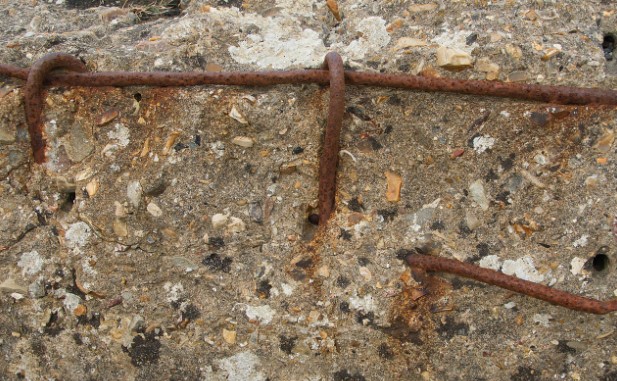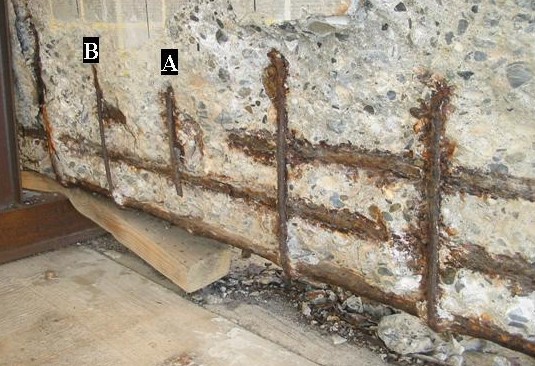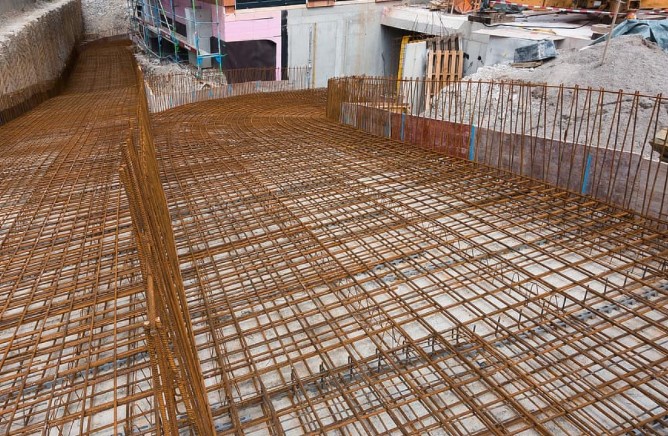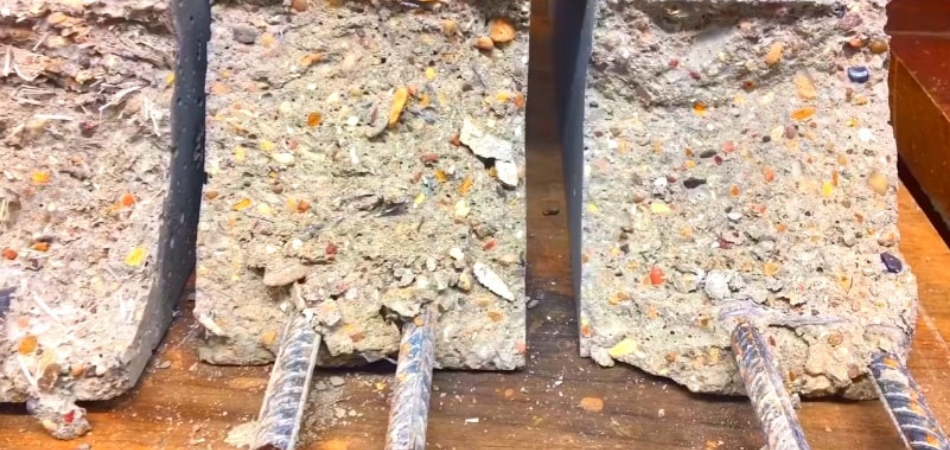Rebar is one of those rods with ridges used in reinforcing concrete. They are mostly found in culverts, concrete slabs, and bridges. They are very important in keeping the stability of these constructions and are needed to be stable and strong to carry their workload. So, does rebar rust?
Yes, Rebar will rust under the same conditions as any carbon or mild steel. But rebar offers a product advantage over mild steel in that the rust layer on rebar is much harder than standard iron oxides. Rust creates a thicker, harder surface on rebar than iron oxide, causing it to last longer than an unprotected bar of mild steel.
Rebar rusting is a common problem, especially if the rebar is embedded in concrete. The rebar creates a corrosion cell and reacts with the cement in concrete to form rust. If water or air is trapped in the surrounding concrete or if the cover over the rebar is insufficient, corrosion of the rebar can occur. Once rusting begins, it will continue unless treated.
To treat it, Rebars can be plated with zinc, which helps prevent them from rusting for long periods. In theory, black bars tend to oxidize less than their steel counterparts due to the presence of phytomelanin. You can read more below on this topic and find out possible ways to prevent and treat rebar of rust
Contents
What Causes Rebar To Rust?

Improperly placed rebar will rust
When rebar is placed wrongly in a slab, it is more likely to rust. Conventionally, rebar is placed at least 3 inches below the concrete, especially in household constructions. When used to mold, it is advised that at least a 1½ inch of concrete should be over it. Failure to observe these codes and some other professional ethics will leave the rebar in the wrong position. When this happens, it will be further exposed to some adverse factors that those measures were designed to curb. So, does rebar rust? On this occasion, yes.
Rebar exposed to moisture will rust
Sometimes, the concrete falls off in chunks thereby exposing the rebars inside. When this happens, they might absorb moisture from flowing liquids or the air, and consequently start deteriorating. Some other times, it is due to the inherent pressure that the rebar applies to the concrete. Rebar is known to expand and they can even expand up to four times their original diameter when rusting. This causes them to exact pressure on the concrete, therefore, causing large chunks of the concrete to fall off, further exposing the rebars to rusting. And like all metals, they will react with the oxygen in the air to form iron oxides which eat the rebars to uselessness.
The environment is also a big factor
Some places are naturally more humid than others and can contain certain natural elements in a larger quantity than other environments. Places that are rich in chlorine will see that the rebars there will corrode quickly. Likewise, some other environs with a rich deposit of hydroxide and some other very electronegative substances. Rebars will also rust in humid environs, at least a lot faster than normal. For example, rebars placed in concrete near a water body are more likely to rust than those used in drier places. Almost certainly, rebars used in extra humid places are going to rust.
Some other factors that can affect rebar rusting…
While these factors may not directly cause your rebars to rust, they most times, play a very big part in making it do so. They are;
Concrete spalling
Concrete spalling is the sudden shedding of concrete chunks from a slab or a wall. Sometimes, when this happens, it exposes your rebars to more external factors.
Rock pockets
Sometimes, concrete can vibrate or not vibrate properly. Some other times, it may be the improper placement of the concrete. These can expose the rebar to corrosive soil and other the outside which will hasten the rusting process.
How Do I Know When My Rebar Is Rusting?
Because rebars are mostly embedded inside the concrete, you might not know when they are rusting. However, this is important knowledge to have as you can not bear the thought of incurring mishaps due to rusting rebar. Look out for these signs, they will tell you when your rebars are on their life ends.

Rust Stains In Cracks
You see this as gray tints near cracks on the concrete and they always form some irregular line that may be dotted or straight. Whenever you observe this happening around the cracks of your concrete, you will need to find maintenance immediately and solve the problem.
When There’S A Pattern To The Cracks On Your Concrete Slabs
Most times, a pattern to the crack on your concrete is indicating that the rebars in the concrete are getting close to the surface and no longer in the correct position. Here also, maintenance and check-up are advised.
Can We Use Rusted Rebar To Build Houses?
Yes, you can. Ironically, it seems to be better even if the rebar rusts a little. Corrosion in rebars is not as disastrous as moths or bacteria eating wood, instead, it can greatly improve the rebar unless the corrosion has eaten deep into the rebar. The major reason for rebar in concrete is for adhesion and fortunately, a little rust on the rebar will provide more surface area for adhesion and further give the intact parts of the rebar protection in the form of a coating.

Moreover, if the concrete is prepared properly, there will not be an issue using rust rebar in it. Concretes are always strongly alkaline and so, the rebar placed on it, whatever the nature, will remain so without changing. However, this might not be applicable in areas that can affect the rebar directly, such as near the ocean where ocean waves will further weaken the rebar. You can also opt for steel bars depending on the project on hand.
To Cap It Off…
Rebar will rust when placed in certain conditions as we mentioned above.it is very important to place them properly and avoid certain factors because they are needed to be strong and be the backbone of concrete constructions. However, rusting is not like a final verdict on rebars. They can even prove more useful when they have rusted a little and that is why they are used in building highways and houses.


